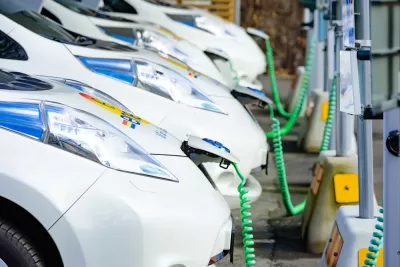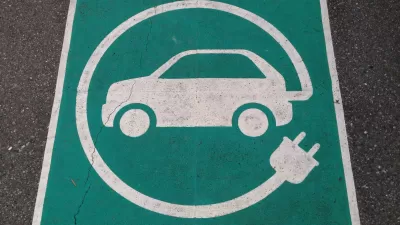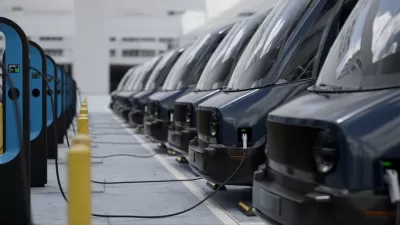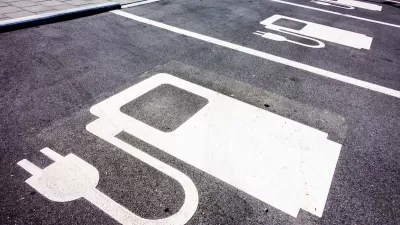Shifting municipal fleets to electric vehicles poses some challenges, but cities can take steps today to prepare for an easier transition to an electric future.

While many cities have pledged to electrify their municipal fleets—including police cars, transit buses, street sweepers, and other vehicles—meeting their goals may be difficult due to a number of factors. As Sharon O'Malley writes on Route Fifty, in additions to concerns about up-front costs (an electric Ford pick-up, for example, costs around $10,000 more than the gas-powered version), "some fleet managers have complained that electric vehicle technology has lagged behind their eagerness to bring electric-powered heavy-duty trucks and equipment on board." City leaders worry that electric heavy machinery like snowplows won't function as effectively or require too much time to recharge.
Some cities, like Portland, Oregon, which has committed to a fully electric city fleet by 2050, have found ways to save costs on charging infrastructure. "To prepare, the city struck a subscription-type deal with a vendor of charging stations so it pays monthly to plug in its cars and trucks rather than laying out the capital to build the stations itself. In turn, it uses its savings on fuel to help pay for charging, making it an operating cost rather than a capital expense."
O'Malley writes that experts advise cities to make strategic decisions to decarbonize their fleets most efficiently, like replacing the cars and trucks that rack up the most miles, which will save more money on fuel. Alan Bates, fleet business operations manager for Portland, says departments like parking enforcement offer "low-hanging fruit" for electrification, offering Portland's three-wheel parking enforcement scooters as an example. "They’re not driving a ton of miles, they’re stop and go, they easily get enough charge every night to come back in the morning and run their routes." Others encourage cities to at least give electric vehicles a test drive in order to "demystify the process" and win over EV skeptics.
FULL STORY: Why Fully Transitioning Municipal Fleets to Electric Vehicles Isn't Easy

Maui's Vacation Rental Debate Turns Ugly
Verbal attacks, misinformation campaigns and fistfights plague a high-stakes debate to convert thousands of vacation rentals into long-term housing.

Planetizen Federal Action Tracker
A weekly monitor of how Trump’s orders and actions are impacting planners and planning in America.

In Urban Planning, AI Prompting Could be the New Design Thinking
Creativity has long been key to great urban design. What if we see AI as our new creative partner?

How Trump's HUD Budget Proposal Would Harm Homelessness Response
Experts say the change to the HUD budget would make it more difficult to identify people who are homeless and connect them with services, and to prevent homelessness.

The Vast Potential of the Right-of-Way
One writer argues that the space between two building faces is the most important element of the built environment.

Florida Seniors Face Rising Homelessness Risk
High housing costs are pushing more seniors, many of them on a fixed income, into homelessness.
Urban Design for Planners 1: Software Tools
This six-course series explores essential urban design concepts using open source software and equips planners with the tools they need to participate fully in the urban design process.
Planning for Universal Design
Learn the tools for implementing Universal Design in planning regulations.
Gallatin County Department of Planning & Community Development
Heyer Gruel & Associates PA
JM Goldson LLC
City of Camden Redevelopment Agency
City of Astoria
Transportation Research & Education Center (TREC) at Portland State University
Jefferson Parish Government
Camden Redevelopment Agency
City of Claremont





























